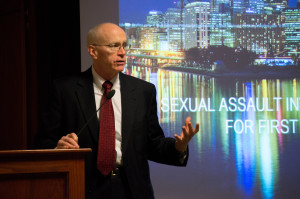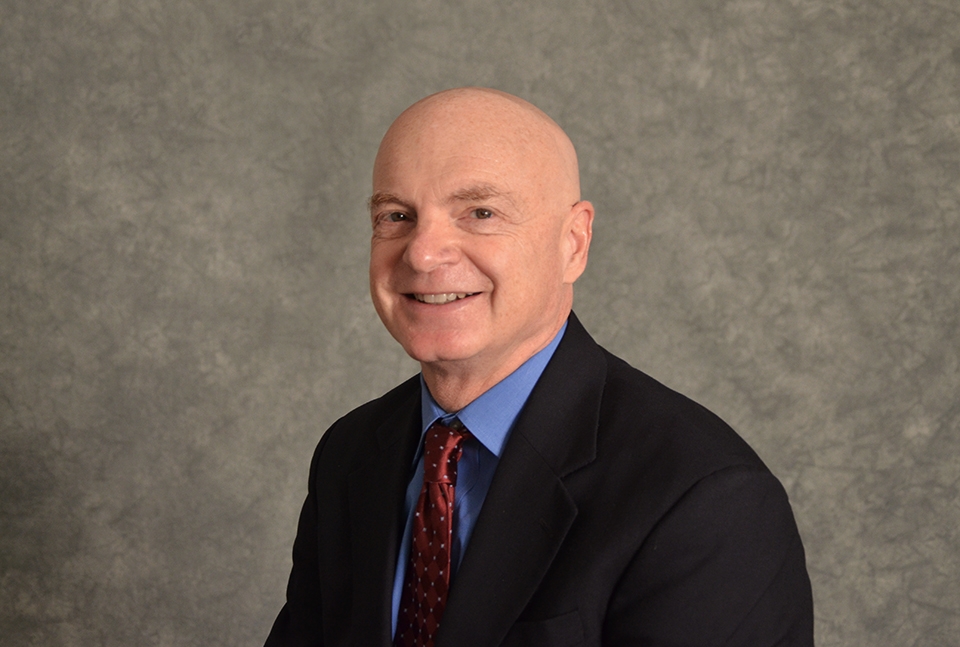
Duquesne Police Chief Tom Hart speaks at a training session Jan. 22.
By Carolyn Conte | The Duquesne Duke
There is at least one rape every 21 hours on an American college campus, according to the Cleveland Rape Crisis Center.
Although Duquesne police reports indicate sexual assault is not a common problem at Duquesne, the university hosted a Jan. 22 training session for campus police to help them better understand how to approach sexual assault investigations.
The training, which took place in the Union ballroom, was split into two workshops that were co-sponsored by Duquesne’s Department of Public Safety and the Wecht Institute of Forensic Science and Law.
“This training was important because it helps police officers be better prepared to handle their initial response for reported sexual assaults,” Hart said. “This will help successfully prosecute these types of crimes and also provide the necessary care for the needs of the victims.”
The sessions included instruction on the fundamentals of sexual assault prosecution. Allegheny County District Attorney Lee Goldfarb told the officers that when they respond to a sexual assault call, they should collect as little information as possible in their first reports.
While this might seem odd, Goldfarb explained that it is better for specially trained forensic nurses to interview victims, who are often traumatized young women. This can also help to avoid confusion, because victims are sometimes too overwhelmed to accurately tell their stories immediately after the attack.
When it comes to the prosecution, if every detail is not always 100 percent consistent, it weakens the victim’s credibility with jurors, according to Goldfarb. This makes sexual assault cases very difficult to try in court.
“It’s a lot of ‘he said, she said’,” Goldfarb explained. “The victim often delays the report [of the rape], and there’s usually no physical evidence.”
To avoid complications, City Detective Bryan Sellers advises first responders to keep it simple.
“That’s all you need to do: Just go and ask the victim if [the victim] was raped,” Sellers said.
Other presentations included Pittsburgh Action Against Rape advocate Megan Schroeder’s “Understanding the Emotional Stress of Sexual Assault Victims”, and “The Forensic Exam and Evidence Collection,” by Debra Shane, a sexual assault nurse examiner at UPMC Mercy.
Program administrator for the Wecht Foundation Ben Wecht said the workshops will also be offered online.
Hart said that victims of sexual assault should understand “that no matter the circumstances that led up to the point of them being victimized, the assault is never their fault.”
He advised that victims of sexual assault report the crime quickly and seek help as soon as possible.
The Department of Public Safety at Duquesne offers programs on campus and prevention tips on the Duquesne website.



